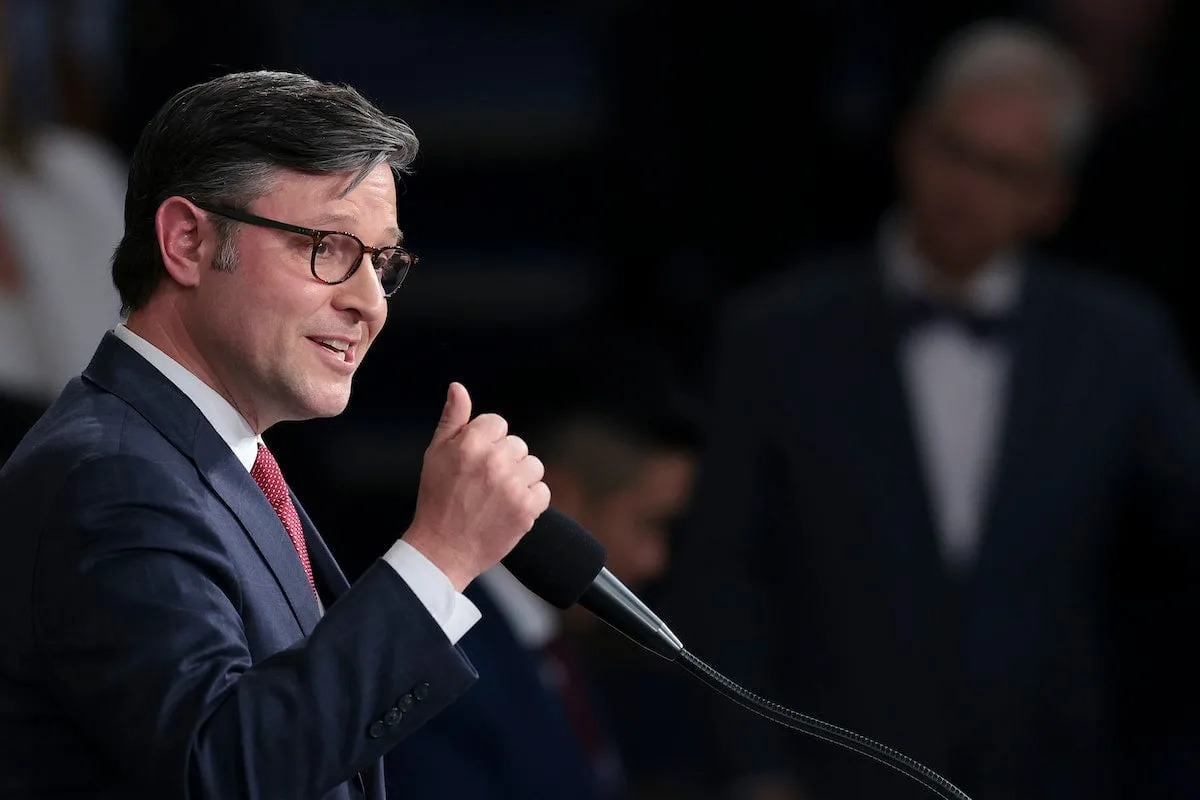CNN – Opinion:
Hard-right Republicans say they hate government, but they sure love the power
Opinion by Nicole Hemmer – October 31, 2023
Editor’s note: Nicole Hemmer is an associate professor of history and director of the Carolyn T. and Robert M. Rogers Center for the Study of the Presidency at Vanderbilt University. She is the author of “Partisans: The Conservative Revolutionaries Who Remade American Politics in the 1990s” and co-hosts the podcasts “Past Present” and “This Day in Esoteric Political History.”
The remarkable spectacle in the House of Representatives, where Republicans repeatedly failed for three weeks to fill the speaker’s seat they vacated in early October, has come to an end. The election of Rep. Mike Johnson of Louisiana to the seat, once the most coveted position in the House, has temporarily put the governing body back in session amid urgent foreign policy crises and a looming government shutdown.
It has been more than 150 years since the speakership sat vacant for so long. And this latest chaos only reinforces our current moment as a time when lengthy vacancies have become a regular feature of the federal government. The 422-day vacancy on the Supreme Court following Antonin Scalia’s death in 2016 was the longest since the court was set at nine members in 1869. The Trump administration was so rife with vacancies that record numbers of agencies had acting heads, which led The Washington Post to describe the executive branch as a “government full of temps.”
In each case, Republicans orchestrated these vacancies. But this government in absentia is not just a sign of the party’s dysfunction. While these vacancies emerged for different reasons, the driving force behind them all is a party that has radicalized to the point that it has created a crisis in democracy with catastrophic consequences for the entire country.
It is tempting to see these vacancies through the feature-not-a-bug lens of the Republican Party’s antigovernment politics. If a party doesn’t care about governing, why would it care that the government isn’t functioning? And certainly some on the right have made arguments to that effect. But that misses the much more insidious logic behind these vacancies: Many of today’s Republicans love government, because government is a form of power. You can’t ban reproductive and transition health care without government. You can’t ban books and drag shows without it. You can’t militarize a border or pardon your political allies without state power.
In many ways, the Republicans in the conference who are less radical are the ones more wary of how their colleagues deploy state power. But they have little power. They may have thwarted the nomination of Rep. Jim Jordan, the hard-right Trump ally who chairs the House Judiciary Committee, as speaker — but they fell in line behind Johnson, a far-right election denier. Right now, the party’s radicals run the conference, and they have found real power in the vacancy strategy.
The last time the speakership was vacant this long was in 1859, on the eve of the Civil War. The nation and its parties were riven by sectional divides over slavery that led politicians to contort the federal government to satisfy proponents of slavery. For eight years in the 1830s and 1840s, pro-slavery forces banned any discussion of antislavery petitions with the infamous gag rule. Conflict over slavery destroyed one political party (the Whigs) and gave birth to a new one (the Republicans). And in Congress, it ground all work to a halt in the House for two months as pro- and anti-slavery forces clashed over the speakership. Finally, a compromise candidate emerged, William Pennington of New Jersey, a freshly elected member who would serve just one term in office. And while the speakership crisis resolved, politics ultimately failed. War broke out a year after Pennington’s swearing-in.
We don’t need to draw the parallels too finely. The divisions in the US today are markedly different than those created by slavery. But the political failings that characterized the years leading up to the Civil War suggest we should pay attention when political institutions and procedures begin to systematically fail. Which is why we should spend some time thinking more seriously about these lengthy vacancies.
The first and most important thing to understand: The Republican Party has been responsible for nearly all these vacancies, at a time when a number of its members have also been responsible for one of the most serious incidents of political violence since the Civil War, the insurrection at the Capitol on January 6, 2021. (There have been deadlier domestic terror attacks, consequential assassinations and widespread state violence against persecuted groups, but the coordinated effort to overturn a presidential election, aided by the leaders of a major party, stands out even among these.)
The motivations have varied. Scalia’s seat remained vacant so Republicans could seize the power to fill it, just as lower courts have had lengthy vacancies to deny Democrats the right to fill those seats. The Trump administration vacancies were devised to give Trump more power over agencies and their leadership, whereas the speaker’s vacancy resulted from intraparty factionalism.
Yet these seemingly disparate motivations spring from a single source: an increasingly radicalized, illiberal Republican Party. In the case of the speakership vacancy, that dynamic annoyed Republican members but did not shake their commitment to antidemocratic politics. After all, the new speaker not only voted to overturn the 2020 election but was an enthusiastic participant in the illegal effort to prevent Joe Biden from taking office.
Scalia’s seat sat empty so Republicans could radicalize the court (mission accomplished). Trump skipped confirmation of Cabinet officials so he could wield more power over them (mission accomplished). A small band of Republicans vacated the speakership in hopes they could install a more right-wing speaker (mission very much accomplished). When government gets in the way of those larger goals, then it must be emptied, contorted or violently rejected, but the goal remains not the destruction of government, but the control of it. Which is why these vacancies — and their resolution — remain one of the most important signs we have of democratic decline in the United States.
By vacating the speakership and elevating Johnson to the highest position in the House, Republican radicals have confirmed the value of this vacancy strategy. And while Johnson may enjoy a longer run than his predecessor, the right has learned that vacancies fit perfectly with its power-grab politics. With an election just a year away — and the memory of a violent attempt at seizing power still fresh in mind — their commitment to this approach portends even more chaos ahead.














